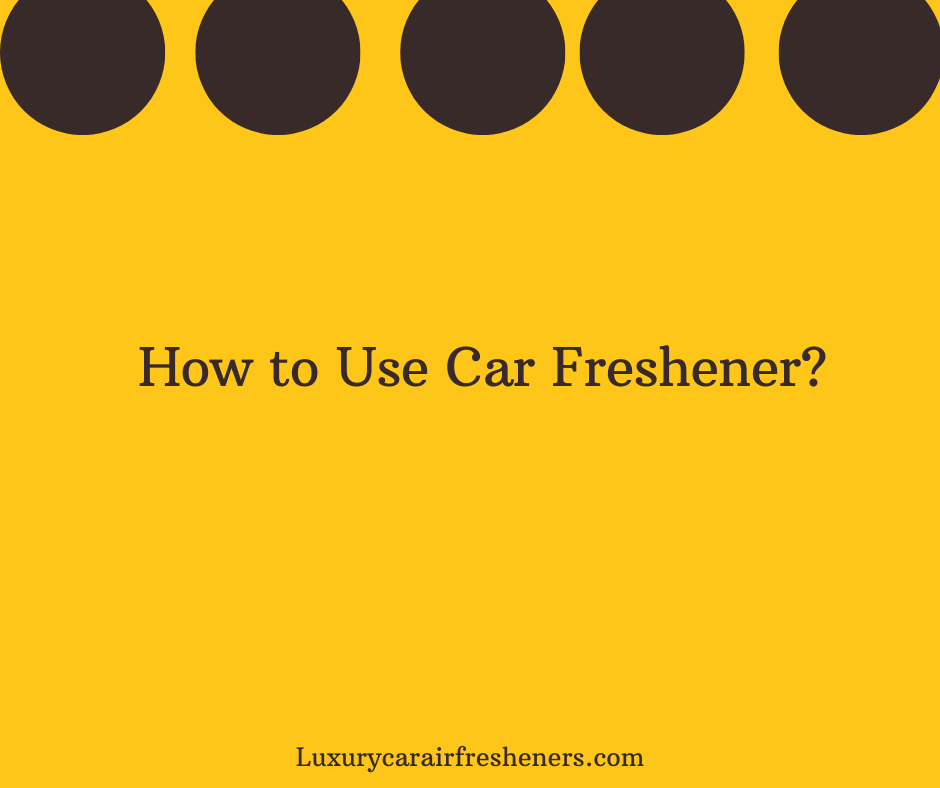Is Air Freshener Bad for Cats? A Comprehensive Guide for Pet Parents
You love your cat, but maybe you don’t love the lingering scent of their litter box. It’s a common dilemma for pet parents: we want our homes to smell fresh and clean, but the health and safety of our furry family members is the top priority. You reach for an air freshener spray, a plug-in, or a scented candle, but a nagging question stops you: is this safe for my cat?
The short answer is that most commercial air fresheners are, in fact, bad for cats, ranging from mildly irritating to dangerously toxic. However, the full answer is more nuanced and depends on the type of product and its ingredients. A cat’s body is not a small human’s; their unique physiology makes them extraordinarily sensitive to chemicals that we might find harmless.
This guide will walk you through everything you need to know about air fresheners and feline safety. We’ll break down the specific ingredients that pose a threat, identify the most dangerous types of products, list the warning signs of toxicity, and most importantly, show you a wide range of effective, cat-safe alternatives to keep your home smelling wonderful without compromising your cat’s health.

Why Cats Are Uniquely Vulnerable to Airborne Chemicals
To understand the risk, we first need to understand why cats are so different from us. Their sensitivity isn’t just about their smaller size; it’s rooted in their biology as obligate carnivores and meticulous groomers.
1. Their Sensitive Respiratory System
Cats have delicate, sensitive respiratory tracts. Inhaling airborne chemicals from sprays, diffusers, and candles can directly irritate the lining of their nasal passages, throat, and lungs. This can lead to issues ranging from sneezing and coughing to severe conditions like feline asthma.
2. Their Grooming Habits Lead to Ingestion
When you use an aerosol spray or a plug-in diffuser, tiny chemical droplets circulate in the air and eventually settle on every surface in your home—including your cat’s fur. Cats are fastidious groomers, spending hours each day licking themselves clean. In doing so, they ingest these toxic particles, which then enter their bloodstream.
3. Their Liver Can’t Process Certain Toxins
This is the most critical factor. The feline liver lacks certain enzymes (specifically, glucuronyl transferase) that humans and even dogs have. This means they are unable to efficiently metabolize and eliminate a wide range of compounds, including many found in fragrances and essential oils. These toxins can build up in their system over time, leading to liver damage or even fatal poisoning.
The Main Culprits: Harmful Ingredients to Watch For
Always read the ingredient label. If a product simply lists “fragrance” without specifying the components, it’s best to avoid it. Here are the most common and dangerous ingredients found in air fresheners.
- Volatile Organic Compounds (VOCs): This is a broad class of chemicals that easily turn into gas at room temperature. Common VOCs in air fresheners include formaldehyde, benzene, acetone, and toluene. They are known respiratory irritants and are linked to both short-term and long-term health problems in pets and humans.
- Phthalates: These chemicals are often used to make fragrances last longer. They are known endocrine disruptors, meaning they can interfere with an animal’s hormonal systems, potentially causing reproductive and developmental issues.
- Essential Oils: This is a major area of confusion. While “natural,” many essential oils are extremely toxic to cats due to their high concentration of phenols and other compounds their livers can’t process. Never diffuse essential oils in a home with cats without consulting a veterinarian. Highly toxic oils include Tea Tree, Pine, Citrus (lemon, orange), Peppermint, Eucalyptus, Ylang Ylang, and Wintergreen.
- Phenols: Often found in cleaners and some air fresheners (especially pine scents), phenols are directly corrosive to cats and can cause severe liver and kidney damage.
A Special Warning About Essential Oil Diffusers
Ultrasonic diffusers that create a fine mist are particularly dangerous. They release micro-droplets of oil into the air that can be easily inhaled and can settle on a cat’s fur. Even oils considered “safe” can cause harm when diffused. It is safest to avoid them entirely in a home with cats.
Risk Assessment: From Most to Least Dangerous Products
While no synthetic fragrance is truly “good” for cats, some forms are more hazardous than others.
High-Risk Products (Avoid Completely)
- Aerosol Sprays: These blast a high concentration of fine chemical particles into the air, making them easy to inhale and ensuring they coat every surface.
- Plug-in Diffusers & Automatic Sprayers: These continuously emit VOCs and other chemicals into the air, creating chronic exposure for your cat. They are among the most common causes of respiratory distress.
- Essential Oil Diffusers: As mentioned above, these pose a significant risk of poisoning through both inhalation and ingestion via grooming.
Moderate-Risk Products (Use with Extreme Caution, If At All)
- Scented Candles & Wax Melts: The soot and smoke can be respiratory irritants. More importantly, the liquid wax pool can contain toxic oils that a curious cat might touch with its paws and later ingest. The open flame also presents a burn and fire hazard.
- Reed Diffusers & Passive Gels: These pose less of a respiratory risk since they aren’t actively spraying particles. However, the liquid is highly concentrated and toxic. A cat knocking one over could get the oil on their paws or fur, leading to poisoning. Understanding your cat’s environment is key; their innate curiosity can turn a simple diffuser into a major hazard. This same curiosity often explains other baffling behaviors and can lead you to ask, why do cats knock things over?
Signs of Air Freshener Toxicity in Cats
If you suspect your cat has been exposed to a toxic substance, contact your veterinarian, the Pet Poison Helpline, or the ASPCA Animal Poison Control Center immediately. Symptoms can vary but often include:
- Respiratory Issues: Coughing, wheezing, sneezing, rapid breathing, or watery eyes/nose.
- Neurological Signs: Drooling, stumbling, lethargy, tremors, or seizures.
- Gastrointestinal Distress: Vomiting or diarrhea.
- Skin Irritation: Redness or chemical burns on the skin or in the mouth if they came into direct contact.
In Case of Emergency
If you see any of these signs, move your cat to a well-ventilated area immediately and call your vet or an emergency pet hospital. Do not wait for symptoms to worsen. Have the product packaging on hand if possible to help identify the toxic ingredient.
The Safe and Fresh Home: Cat-Friendly Alternatives
The good news is that you don’t have to choose between a fresh-smelling home and your cat’s safety. Here are some fantastic, pet-friendly methods for controlling odors.
- Ventilation is Your Best Friend: Simply opening windows for 15-30 minutes a day can do wonders to clear out stale air and odors.
- Cleanliness is Key: The best way to eliminate odors is to remove the source. Scoop the litter box daily, wash pet bedding regularly, and clean up any accidents promptly with an enzyme-based cleaner.
- Use Natural Odor Absorbers: Place open boxes of baking soda or bowls of activated charcoal in smelly areas. They are excellent at absorbing odors from the air without releasing any chemicals.
- Simmer Pots: Gently simmer a pot of water on the stove with cat-safe ingredients like cinnamon sticks, cloves, and apple slices. This creates a wonderful, natural aroma.
- Invest in a High-Quality Air Purifier: This is arguably the most effective and safest solution. A good purifier with a HEPA filter will physically remove odor particles, allergens, and dust from the air instead of just masking them with chemicals.
As an Amazon Associate, we earn from qualifying purchases. The products below have been carefully selected as genuinely pet-safe alternatives to help you maintain a fresh and healthy home for your entire family.
Our Top Picks for Cat-Safe Home Fragrance & Cleaning
Here are some highly-rated products available on Amazon that are designed with pet safety in mind.

LEVOIT HEPA Air Purifier for Home
An air purifier is an investment in your cat’s health. This best-selling model from LEVOIT uses a three-stage filtration system to trap pet dander, dust, and odor particles, leaving your air truly clean and fresh without any added chemicals.
Check Price on Amazon
Rocco & Roxie Supply Co. Stain & Odor Eliminator
For tackling tough pet odors at the source, nothing beats an enzymatic cleaner. This professional-strength formula uses natural enzymes to break down and eliminate organic stains and smells completely, rather than just covering them up. It’s safe for carpets and furniture.
Check Price on Amazon
MOSO NATURAL Air Purifying Bag
A simple, silent, and completely non-toxic solution. These bags are filled with activated bamboo charcoal, which absorbs odors, moisture, and allergens from the air. Place them near litter boxes, pet beds, or anywhere you need to freshen up. They are reusable for up to two years.
Check Price on AmazonFrequently Asked Questions
Are “natural” or “unscented” air fresheners safe for cats?
“Natural” is an unregulated marketing term; it does not mean safe. Many “natural” products use essential oils that are toxic to cats. “Unscented” products can also be risky, as they may contain masking chemicals to cover the smell of the base ingredients. Always read the full ingredient list.
What if I only use the air freshener in one room and keep the cat out?
This reduces the risk but doesn’t eliminate it. Chemical particles can easily travel through vents and under doors. They also settle on you and your clothes, and you can transfer them to your cat when you pet them. It’s safest to remove the product from your home entirely.
Are there ANY essential oils that are safe for cats?
This is a highly debated topic. Some vets suggest that hydrosols (the aromatic water left over after steam distillation) or certain oils like frankincense might be safe in extreme dilution and when not diffused. However, the consensus among major veterinary and poison control organizations is that the risk outweighs any potential benefit. It is safest to avoid them all.
Is it okay to use a scented candle if my cat isn’t nearby?
The primary danger from candles comes from the soot and chemicals released into the air during burning, which will circulate throughout the home. A secondary danger is a cat getting near the hot wax. A 100% soy or beeswax candle with a lead-free wick is a *better* choice than a paraffin wax candle, but an un-scented one is always the safest option.
Conclusion: Prioritize Health for a Happier Home
While the desire for a pleasant-smelling home is understandable, the health and safety of our pets must always come first. The vast majority of commercial air fresheners contain ingredients that are fundamentally incompatible with a cat’s sensitive biology. By understanding the risks and embracing safer alternatives, you can easily maintain a clean, fresh, and—most importantly—healthy environment for your beloved feline.
Ditch the chemicals, open a window, and invest in solutions that truly clean your air. Your cat’s respiratory system, liver, and overall well-being will thank you for it.

